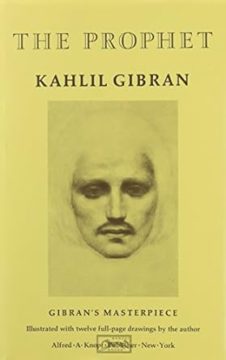Gus Mitchell at JSTOR Daily:
 It is a very different story in Arabic, where Gibran is held to be a crucial modern innovator, a transitional bridge between the conventions and strictures of a more classical tradition and a newer, freer, romantic sensibility. In Gibran’s case, the adage of the prophet without honor in his home country is inverted. In the West (where Gibran made his home and sought recognition) academic and “literary” opinion regards his concerns and their treatment as utterly anti-modern. He is, indeed, heretically retrograde: fancily faux-Biblical, extravagantly overwritten, vague, naïve, sentimental, and whole lot of other things, terms often directed in baffled rage at Gibran’s apparently undeserved popular appeal. The year 1923, after all, saw the debuts of Wallace Stevens and other modernist high priests in the United States and came hot on the heels of T.S. Eliot’s The Waste Land and James Joyce’s Ulysses the year before. In his adopted tongue, at least, Gibran was an artist out of time.
It is a very different story in Arabic, where Gibran is held to be a crucial modern innovator, a transitional bridge between the conventions and strictures of a more classical tradition and a newer, freer, romantic sensibility. In Gibran’s case, the adage of the prophet without honor in his home country is inverted. In the West (where Gibran made his home and sought recognition) academic and “literary” opinion regards his concerns and their treatment as utterly anti-modern. He is, indeed, heretically retrograde: fancily faux-Biblical, extravagantly overwritten, vague, naïve, sentimental, and whole lot of other things, terms often directed in baffled rage at Gibran’s apparently undeserved popular appeal. The year 1923, after all, saw the debuts of Wallace Stevens and other modernist high priests in the United States and came hot on the heels of T.S. Eliot’s The Waste Land and James Joyce’s Ulysses the year before. In his adopted tongue, at least, Gibran was an artist out of time.
more here.
